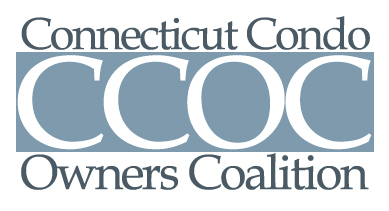Rules For Board Members To Act Without Meeting
This will address the queries CCOC has received regarding two-thirds consent voting. We believe this should clarify your questions.
In 2009, the Connecticut legislature required condominium executive board meetings to be open to unit owners and gave unit owners an opportunity to comment at executive board meetings. A board could act outside of a meeting only with unanimous consent of the board members. The trend was to make condominium operations more transparent.
In 2015, the Connecticut legislature reversed the trend. In Public Act 15-211, the legislature changed the unanimous consent to a 2/3 consent of board members. In other words, boards can now act by “not less than two-thirds consent” without holding a meeting, no matter what the topic.
There a few clearly stated protections in the consent procedure, now codified in Section 47-250(b) of the Connecticut General Statutes.:
- The consent must be in writing.
- The writing must be authenticated by all board members, who must indicate either consent or non-consent.
- The secretary must promptly give notice of the consent to the unit owners.
Boards have been using the consent procedure, most often incorrectly.
- Consents are not circulated to all board members.
- Consents only record the actions of two-thirds of the board and do not indicate whether each board member consented or did not consent.
- Boards do not send notice of the consent to the unit owners. Some boards have been told that it is sufficient to record the consent in the minutes of the next board meeting. Unless the board meeting is immediately after the consent, recording of the consent in the meeting minutes is not “prompt.”
- Unit owners do not receive notice of the consent unless all unit owners receive copies of the minutes promptly.
Until the unit owners are given notice of the consent, it is not a “final” binding action of the board. The consent can be challenged at any time and set aside by a court.
Associations may use their ordinary unit owner notice procedures. Unit Owners, who have agreed, can receive notice by email. Other unit owners must receive notice by mail or hand-delivery. A knowledgeable condominium attorney should review the consent procedures.
Boards should realize not all decisions are appropriate to make by “consent.” Some actions will have significant impacts on unit owners. Boards should opt for complete transparency on any major issue and have the advantage of unit owner involvement and input.
As always check with your legal counsel should there be questions.
Pat Ayars is a Glastonbury attorney who specializes in condo issues. She is a member of the Connecticut Condo Association Advisory Committee.






5/10/18
Gail:
Thank you for researching and clarification.
I am new to a CT hoa board assisting 28 homes. Can you tell me the number of board members we should have??
What do your bylaws state? if silent I would recommend 5. George
How many meetings can a Board Member miss?
Doesn’t 47-250(b)(9) fly in the face of 47-250(b)(1) in that some sort of meeting of board members would have to take place in order for 2/3 of them to arrive at a consensus? To put it another way, does the enactment of 47-250(b)(9) effectively limit the application of (b)(1) to only situations where board members know that they do not have a solid 2/3 consensus?
My medical complex uses a management co. That owns a majority he is owner and Managment. He hired a maintenance man to do everything from landscaping, snow plow9, janitorial, etc. He is paid 19,000 but charges back 42,000 to us, does not seem fair. He just went up from 3 per cent to 5 per cent for his fees. Since he is a majority are we now screwed by him cheating on non competitive fees. Please advise.
Does the Board always need a vote on a special assessment in excess of 15% OF OPERATING BUDGET?
yes
Does the board need to notify unit owners of condo increase And must the unit owner must have a e mail address.?